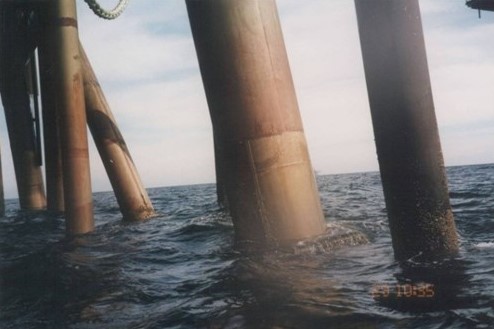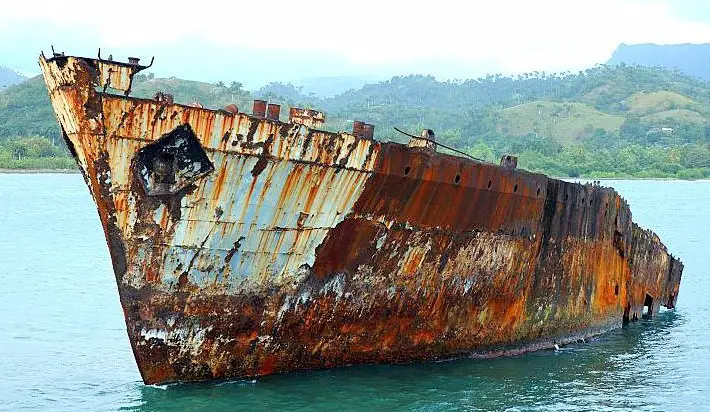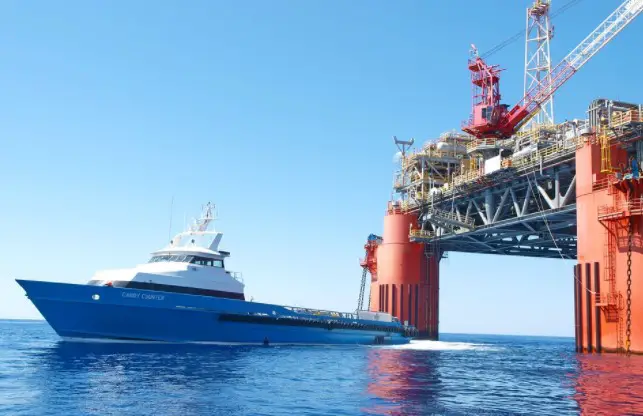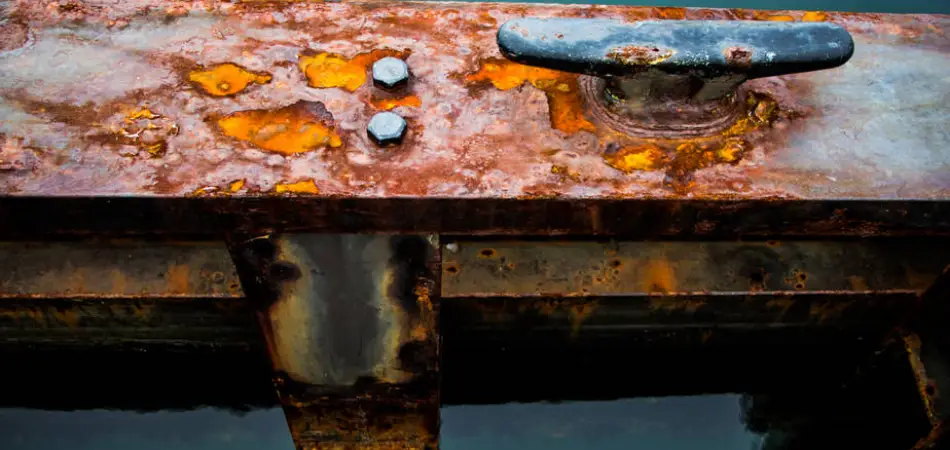Metal rusts when exposed to the oxygen in the atmosphere. When it comes to saltwater, the rusting process is accelerated greatly because water acts as an electrolyte that conducts electricity and carries ions. These ions increase the conductivity of the solution. So, how long does it take for metal to rust in saltwater?
The time it takes for metal to rust depends on the type of metal and its thickness under a layer of paint. Steel can start rusting in as little as 6 hours after being exposed to moisture or saltwater.
When metal is exposed to oxygen, the oxygen is attached to the surface of the metal, which then forms a weak bond on top of it. When these weak bonds are formed, the metal becomes covered in rust.
So, the main reason for corrosion is that the metal absorbs oxygen from water. When a metal is placed in a saltwater solution, it starts rusting faster than in pure water.
Contents
Do Copper-nickel Alloys Offer Corrosion Resistance To Sea Water?
Yes, to an extent. Copper-nickel alloys can offer corrosion resistance to seawater as a result of the formation of a thin, protective surface film that adheres and forms quickly and naturally upon susceptibility to seawater.
The film formed by copper-nickel alloys is very complex and mainly composed of a mixed oxide of nickel and iron. The long term performance of copper-nickel alloys can sometimes depend on how they react when they are initially exposed to seawater. The protective film forms immediately at first in a couple of days but can take about two to three months to mature, at the same time it will take metal to begin to show signs of rust.

However, the time it takes to offer corrosion resistance is also largely dependent on the level of temperature present in the water. The lower the temperature, the slower the protective film is developed.
Furthermore, a good surface film decreases the rate of corrosion. This is the reason the corrosion rate of copper-nickel alloys can be difficult to predict based on exposure for a short while. Also, the level of pollution or cleanliness of seawater is a strong determinant.
Does Saltwater Make Metal Rust Faster?
Yes, saltwater makes metal rust faster. Rust is a form of corrosion that occurs when atoms of metal react with their environment. For rusting to occur, three things are needed, moisture, oxygen and an electrolyte.
When a metal object comes in contact with moisture (often present in air), the oxygen present in the atmosphere reacts with the moisture deposited on the metal surface. This is what causes a breakdown and release of metallic ions often resulting in the formation of iron oxide, which we commonly refer to as rust.

For this to occur, however, an electrolyte is needed. An electrolyte is what helps the metal break down its ions faster. Saltwater acts as an electrolyte which means it does not cause rust. In fact, the absence of the tiniest amount of oxygen in saltwater means a metal object might undergo other reactions but it won’t rust because oxygen is an essential component for rust.
Saltwater accelerates the rusting process because electrons move better in saltwater than they would move in distilled water.
Can Saltwater Rust Steel?
Yes, saltwater can rust steel. There are only two types of metal that undergo rust; iron and steel. For saltwater to be able to rust steel, steel has to be in the same conditions or similar conditions as iron.
This means that whatever will rust iron, will also rust steel. This is not to say that other metals do not corrode, they do. However, rust is only peculiar to iron and steel alone.

While rust will make the metals form iron oxide and wear away at whatever rate the conditions of the environment offers, corrosion will enable the metal to form a protective layer. As a result, while a rusted metal object will give-off, a corroded metal object (such as aluminum) will build-up
Will Salty Air Corrode Metal?
No, salty air does not corrode metal but it fastens the corrosion rates of metal objects. When salty air is mixed with pollution, the various types of metals speed up their corrosion rates. The levels of pollution are higher in industrial, marine, and urban areas. These areas contain several pollutants such as sulfur, nitrogen oxides, auto emissions, waste, fuels for heating, and other substances.
Other areas can also produce a mixture of pollutants at high levels. When these are mixed with salty air, the pollutants have a snarky effect on metal, causing a higher level of damage to the metal objects involved.
Can Rust Occur In The Absence Of Air?
Yes, rust can occur in the absence of air. For rust to occur, two major factors are most important; oxygen and moisture. Water is a combination of two elements; hydrogen and oxygen. This means that when water is broken down, oxygen is found as a component. As a result, rust can occur in a water body except if there is a high degree of pollution that has affected the level of oxygen present to a certain degree.
Once oxygen and moisture are present and they come in contact with a metal object made of iron or steel, the resultant effect of the reaction between them is iron oxide, which is a red or dark-brown phenomenon that is commonly referred to as rust.
In Essence
The time taken for a metal object to rust completely in saltwater is averaged two to three months. However, this is largely dependent on other factors such as the level of oxygen and pollutants present in water.
Saltwater will accelerate the rusting process of a metal object much more than distilled water would. However, alloys of copper and nickel will most often offer corrosion resistance to salt water due to their ability to form a protective layer.


